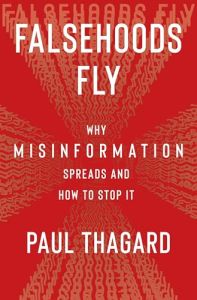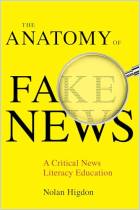Acesse a sua conta getAbstract para obter o resumo!

Acesse a sua conta getAbstract para obter o resumo!
Paul Thagard
Falsehoods Fly
Why Misinformation Spreads and How to Stop It
Columbia UP, 2024
Sobre o que é?
You can detect and repair misinformation in politics, science, and health.
Recommendation
Ubiquitous misinformation, rumors, hoaxes, mistakes, and lies weaken popular understanding of critical issues. New communication technologies — particularly social media — help distortions and lies spread wider and faster, playing havoc with politics, healthcare, science, and other functions of modern society. University of Waterloo philosophy professor Paul Thagard explores how people produce and share information and how mistakes or malice undermine the process. He describes the cognitive mechanisms involved in generating and spreading information, shows how they can break down, and prescribes strategies for identifying, confronting, and neutralizing misinformation.
Summary
About the Author
Paul Thagard, professor emeritus of philosophy at the University of Waterloo, was elected a fellow of the Royal Society of Canada. He has written numerous books including Conceptual Revolutions and Bots and Beasts: What Makes Machines, Animals, and People Smart?

















Comment on this summary